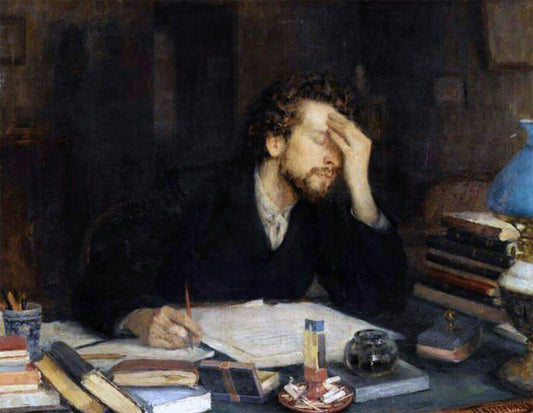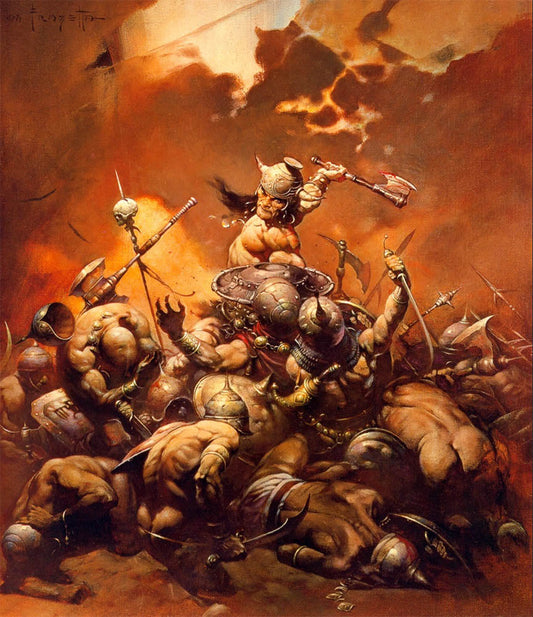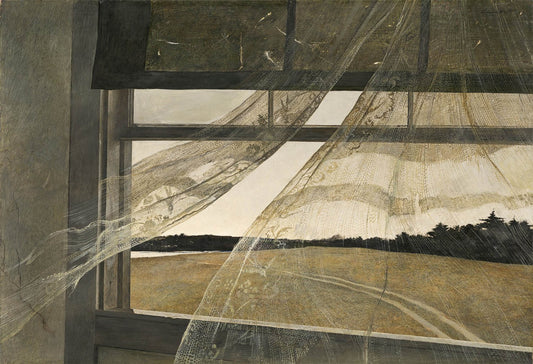How to Find Inspiration: The Muse Demands Your Commitment
Andreas ClaußenShare

Inspiration is often depicted as a whimsical and unpredictable force that strikes at random, gracing select individuals with brilliant ideas out of the blue. However, relying on this romantic notion can leave you waiting endlessly for a spark that might never come. Instead, the key to finding inspiration lies in understanding that it demands effort, discipline, and consistent engagement. The muse is a bitch, and you have to pay her. Or she will not blow your... mind. This is true. The muse will not work for free. But how do you pay her, or how do you make her come (sorry for the wording) to give you the relieving gift of inspiration?
Rethinking Inspiration
To harness inspiration effectively, you need to shift your mindset. Consider the words of W. Somerset Maugham:
"I write only when inspiration strikes. Fortunately, it strikes every morning at nine o'clock sharp."
This quote encapsulates the difference between an amateur and a professional approach. Amateurs wait all the time. They wait for inspiration, they wait for the right tools, they wait for the perfect studio, they wait for a specific constellation of the stars. While amateurs wait, professionals build life around what is important to them—the work—and make space for it every fucking day.
Building a Habit for Inspiration
Yes, the muse demands effort, discipline, and regular engagement. You can’t just call her when you have time, maybe on a weekend in between things. You need to create a habit that enables you to meet her regularly. Here’s how you can cultivate a habit that invites her and the gift of inspiration:
- Set a Regular Time: Dedicate a specific time each day to engage in your creative work. This could be early in the morning, during lunch breaks, or in the evening—whenever you can consistently make time.
- Be Open to Ideas: During your dedicated time, allow yourself to brainstorm freely. Sketch, write, or jot down random thoughts. Categorize these ideas and ask yourself:
- Which problems do I have with ongoing works?
- What challenges me at the moment?
- Which genre do I work in and why?
- Does my genre have rules that I can break to create something fresh?
- What made me question an old assumption that I believed to be true?
- What direction would I like to explore in the next works?
- What is directly in front of me?
- Hunt for Ideas: As you make this a regular practice, you will start recognizing potential ideas everywhere. This is a journey of self-discovery, as everything that catches your attention reflects something about you.
Avoiding Time Sinks
Not all activities are conducive to finding inspiration. So, watch out! Do not scroll your feeds, play a game, watch a movie, or flip through an unrelated magazine to find inspiration. These have all terrible ROI (return on investment) because they suck so much time from your life and give back so little (unless they are part of the genre you want to contribute to, and you really do internalize and work through what you see—which, to be honest, you won’t do).
And don’t fool yourself with the “I just do research” argument. There is a time to do research (when you know what you want to create but can’t move on because of a technical or intellectual obstacle) but not now. Now you want to find an idea to develop. Not a “great” or “unique” idea, just something that gets you started and wakes your interest. You may ask yourself: Why should I start without an amazing idea? Let’s go on.
Execution Over Ideation
It’s crucial to remember that ideas are just the beginning. They are just this tiny little thing in the womb that must be developed, and this takes a lot of time and work. Don’t get overexcited about an idea you think is unique and gorgeous. You must understand that ideas are shit and execution is the game. This means that the best idea is worthless when YOU cannot execute it.
Meanwhile, a mediocre, bad, or boring idea can be executed in a crazy good way. Take this idea: A young wizard attends a magical school, where he makes some friends and battles the same dark wizard multiple times. This does not sound like a revolutionary or super unique idea. BUT, if done right it becomes a book series that reaches billions of people, makes billions of dollars, creates hundreds of thousands of jobs in publishing, film production, merchandising, theme parks, gaming, theaters, events, marketing, and more, and influences the minds of generations to come, shapes the genre, and inspires creators worldwide to create their own worlds. We are talking about Harry Potter, by the way. Understand: Execution is where the magic happens!
Recording and Developing Ideas
I, for example, write or sketch in a sketchbook every day, since 2013. No excuse for leaving a day out. It is important for me to keep this habit alive, so ideas come in as soon as I open the sketchbook and, for sure, when the damn thing is not around.
In this sketchbook, I work quickly and in an ugly way. I want to write or sketch enough to understand the idea and get it back in my head when I see the page a month later. These scribbles are not for an Instagram account, they are not training exercises to stay sharp, they are just a download of my mind, here to wait until I use them. Most of them will never make it into a final product. But this is okay. They are a collection of ideas and from every sketchbook I pick around 4-8 and develop them into paintings. This is enough to fill my monthly quota of painting hours.
To ensure a steady flow of inspiration:
- Keep a Sketchbook: Make it a habit to jot down ideas daily. This practice is not about creating perfect pieces, but about capturing your thoughts.
- Accept Imperfection: Most ideas won’t be masterpieces, and that’s okay. The goal is to develop a habit of recording and revisiting your ideas.
- Select and Develop: Periodically review your sketchbook and select a few ideas to develop further. This ensures you always have a pool of concepts to work on.
Final Thoughts
Finding inspiration is a disciplined practice rather than a spontaneous event. So, make some space for the muse and act in anticipation of her coming. If you do that, you can cultivate a fertile ground for ideas to flourish. As Steven Pressfield discusses in “The War of Art,” overcoming resistance and showing up every day is key to unlocking your creative potential.



